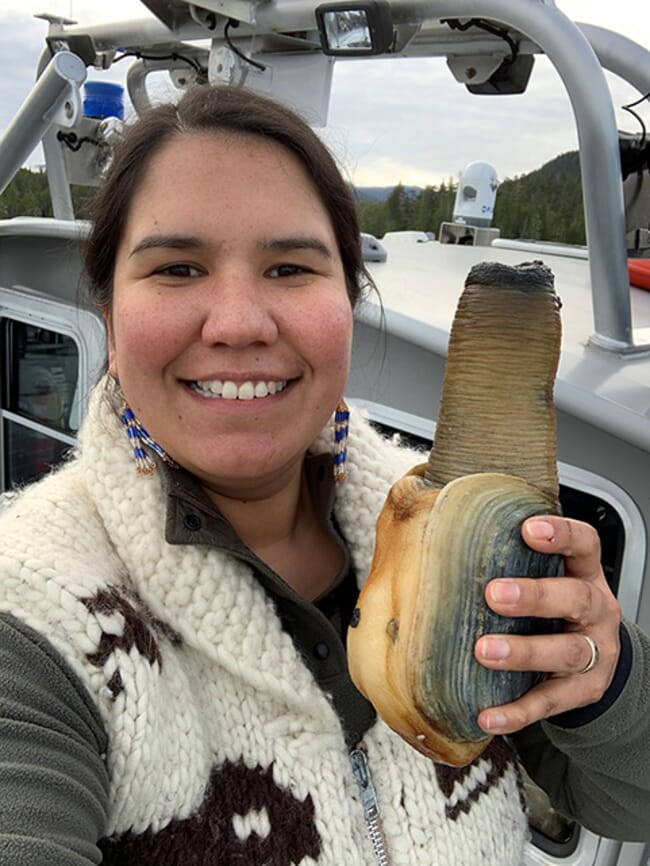
Desiree Lawson, MaPP implementation coordinator, Central Coast Indigenous Resource Alliance with a geoduck © Desiree Lawson
The Pacific geoduck (pronounced gooey-duck) is the largest burrowing clam species in the world. It is indigenous to coastal BC and is a highly valued seafood in Asian markets, leading to a lucrative wild fishery and a growing aquaculture sector.
“We are very excited to be working with the Central Coast Commercial Fisheries Association, its member First Nations and a diverse team of collaborators on the first geoduck aquaculture pilot project on the Central Coast,” said Naomi Tabata, manager of the Centre for Applied Research, Technology and Innovation at NIC. “The training and results from this research will have a meaningful impact on the communities and will provide rich applied learning experiences for NIC students.”
NIC researchers Allison Byrne and Logan Zeinert will work with the Nations on this three-year project to measure and compare the geoduck production capacity at test sites in the Central Coast.
The first year of the project will measure the sites’ physical characteristics and ocean conditions. In years two and three, the growth and survival of juvenile geoducks will be monitored.
As part of its goal to advance economic opportunities and further the well-being of the Nations’ individual members, including through access to high value species such as geoduck and sea cucumber, the Central Coast Commercial Fisheries Association (CCCFA) is interested in the feasibility of geoduck aquaculture at several candidate sites within the Heiltsuk and Kitasoo Xai’xais Nations’ traditional territories.
In addition to providing CCCFA with scientific results related to geoduck production capacity, the project will build capacity within CCCFA to pursue a new economic development opportunity.
The CCCFA is a commercial fisheries business, operated as a partnership between the Central Coast First Nations: Heiltsuk, Kitasoo Xai’xais, Nuxalk and Wuikinuxv. Other partners on the project include the Central Coast Indigenous Resource Alliance (CCIRA), Fisheries and Oceans Canada and the Marine Plan Partnership for the North Pacific Coast (MaPP) and its partners within the BC Government. The project is funded by the Natural Sciences and Engineering Research Council (NSERC).




